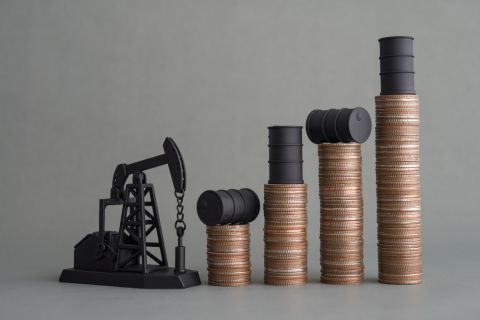ConocoPhillips Co. issued a muted annual outlook on Tuesday, expecting a hit from weaker oil demand growth due to the coronavirus outbreak and disruptions at its operations in Malaysia and Libya.
Shares of the company, which also reported lower-than-expected fourth-quarter profit, fell as much as 3.6% and were at the bottom of the S&P Energy Index.
On a post-earnings call with analysts, ConocoPhillips CEO Ryan Lance warned that oil demand growth could be hit by 100,000 to 200,000 barrel per day this year due to the outbreak of the flu-like virus in China.
Lance expects a build-up in oil storage in the United States and in non-OPEC countries to pressure crude prices. However, there will be a drawdown later in the year, he added.
ConocoPhillips also said it was tapering down production in Libya and expects no output "fairly soon", following a force majeure between ConocoPhillips and the country's National Oil Corp. (NOC).
In January, two major oilfields in southwest Libya began shutting down after military forces closed a pipeline. NOC declared force majeure on crude loadings from the Sharara and El Feel oil fields, Reuters reported then.
ConocoPhillips cut its 2020 production forecast range to 1.23 million barrels of oil equivalent per day (boe/d) to 1.27 million boe/d, excluding Libya, from its prior range of 1.24 million boe/d to 1.31 million boe/d, expecting a hit from a third-party pipeline outage at the Kebabangan Field in Malaysia.
It, however, maintained plans to spend $6.5 billion to $6.7 billion.
Analysts on average were expecting capex of $6.48 billion and production at 1.287 million boe/d.
"Given COP's consistent outperformance for the last two years, guidance slightly below consensus expectations will probably slightly tarnish the company's gold reputation," Scotiabank analyst Paul Cheng said.
ConocoPhillips' net income fell 61.5% for the fourth quarter, partly hit by impairment charges of $386 million related to the pending sale of properties in Colorado.
Excluding items, profit was 76 cents per share, missing the average analyst estimate of 80 cents, according to IBES data from Refinitiv.
The quarterly profit was hit by an 11.3% plunge in prices for the company's oil and gas as well as a 2% decline in production, excluding Libya.
The company also boosted its share buyback program by $10 billion at a time when investors have been pushing energy companies to prioritize shareholder returns over production growth.
Recommended Reading
Texas LNG Export Plant Signs Additional Offtake Deal With EQT
2024-04-23 - Glenfarne Group LLC's proposed Texas LNG export plant in Brownsville has signed an additional tolling agreement with EQT Corp. to provide natural gas liquefaction services of an additional 1.5 mtpa over 20 years.
US Refiners to Face Tighter Heavy Spreads this Summer TPH
2024-04-22 - Tudor, Pickering, Holt and Co. (TPH) expects fairly tight heavy crude discounts in the U.S. this summer and beyond owing to lower imports of Canadian, Mexican and Venezuelan crudes.
What's Affecting Oil Prices This Week? (April 22, 2024)
2024-04-22 - Stratas Advisors predict that despite geopolitical tensions, the oil supply will not be disrupted, even with the U.S. House of Representatives inserting sanctions on Iran’s oil exports.
Association: Monthly Texas Upstream Jobs Show Most Growth in Decade
2024-04-22 - Since the COVID-19 pandemic, the oil and gas industry has added 39,500 upstream jobs in Texas, with take home pay averaging $124,000 in 2023.
Shipping Industry Urges UN to Protect Vessels After Iran Seizure
2024-04-19 - Merchant ships and seafarers are increasingly in peril at sea as attacks escalate in the Middle East.



